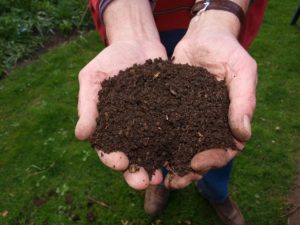The act of gardening itself is an environmentally friendly way of living but making the extra effort towards sustainable gardening takes the eco-friendly factor even further. Growing your own food is a perfect example of sustainability and finding ways to be as organic as possible while doing so can provide various long-term benefits for our environment.
What exactly is sustainable gardening? In short, it’s a gardening practice that aims to reduce any harmful impact on the earth. A few examples of sustainable practices are conserving water, reusing waste and avoiding chemicals. If you can’t commit to a fully sustainable garden, simply start small. Even the smallest amount of effort can make an impact.
Do your part to reduce your carbon footprint on the planet with the following easy tips for sustainable gardening.
Here are the Top Five Easy Tips You Can Do For Sustainable Gardening
- No Chemicals
Get rid of the chemicals when it comes to removing weeds and pests and start organic gardening. A sustainable garden can only be achieved by eliminating toxic pesticides, herbicides and fertilizers and going all natural. In addition, switch to non-toxic pest control methods.
- Reuse, Recycle and Compost
Reusing, recycling and starting a compost pile are all great ideas for sustainable gardening. Keep items out of landfills and try to give old items new purposes instead of being wasteful. Composting is beneficial for waste reduction, garden success, cost savings and water savings.
- Conserve Water
Speaking of water savings, conserving water is another great example of a sustainable gardening practice. Collect rainwater with the use of rain barrels, grey water or storm water and reuse it for your gardening needs, which results in cost savings and less reliability on water sources.
- Mulch
Mulching your garden helps hold the moisture in and keep the weeds out. It’s an important step towards soil health in addition to creating a more eco-friendly, sustainable garden.
- Know What to Grow
Believe it or not, the plants used in your garden can contribute to a more sustainable garden. Growing plant natives, or local species that are indigenous to your region, are already suited to your climate and require less maintenance. Natives will also provide shelter to the insect and bird species that are indigenous to your region as well.
Find & compare the world’s best garden suppliers for vegetable seeds or flower seeds to use in your garden. Garden Savvy is the gardening catalog of catalogs. Search our gardening database now!
Recent Posts
- Smart Gardening: How Technology Is Revolutionizing Horticulture
- Understanding Gardening Zones: What You Need to Know
- The Right Tools For Your Gardening And Landscaping Needs
- Maximizing Your Harvest: Square Foot Gardening Chart for Beginners
- Holiday Garden Scents: Plants for Natural Aromatherapy in Your Home







GardenGuy24 4 years ago
Thanks for this article Gina. Ive been trying to find more ways to recycle and be sustainable!
Share